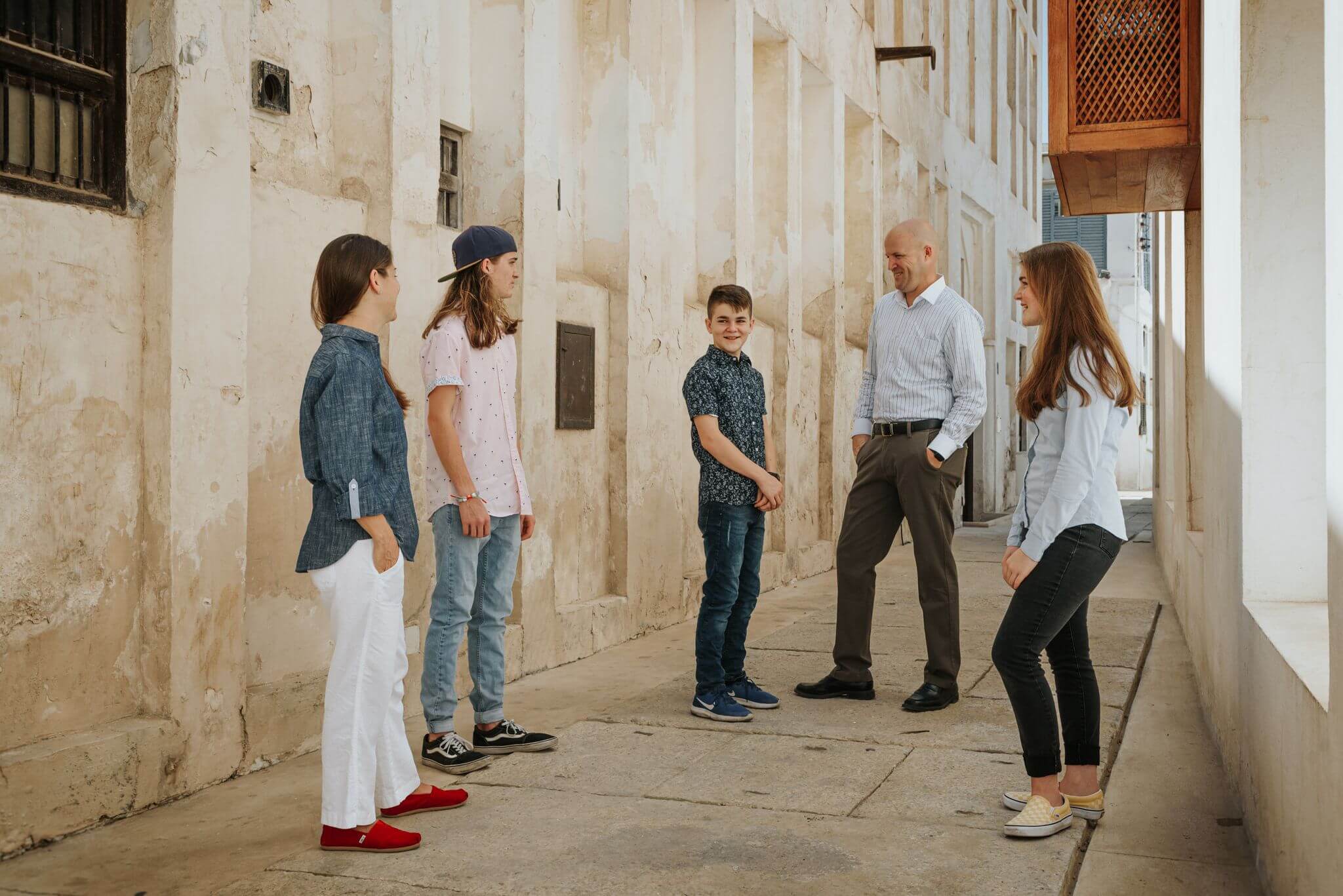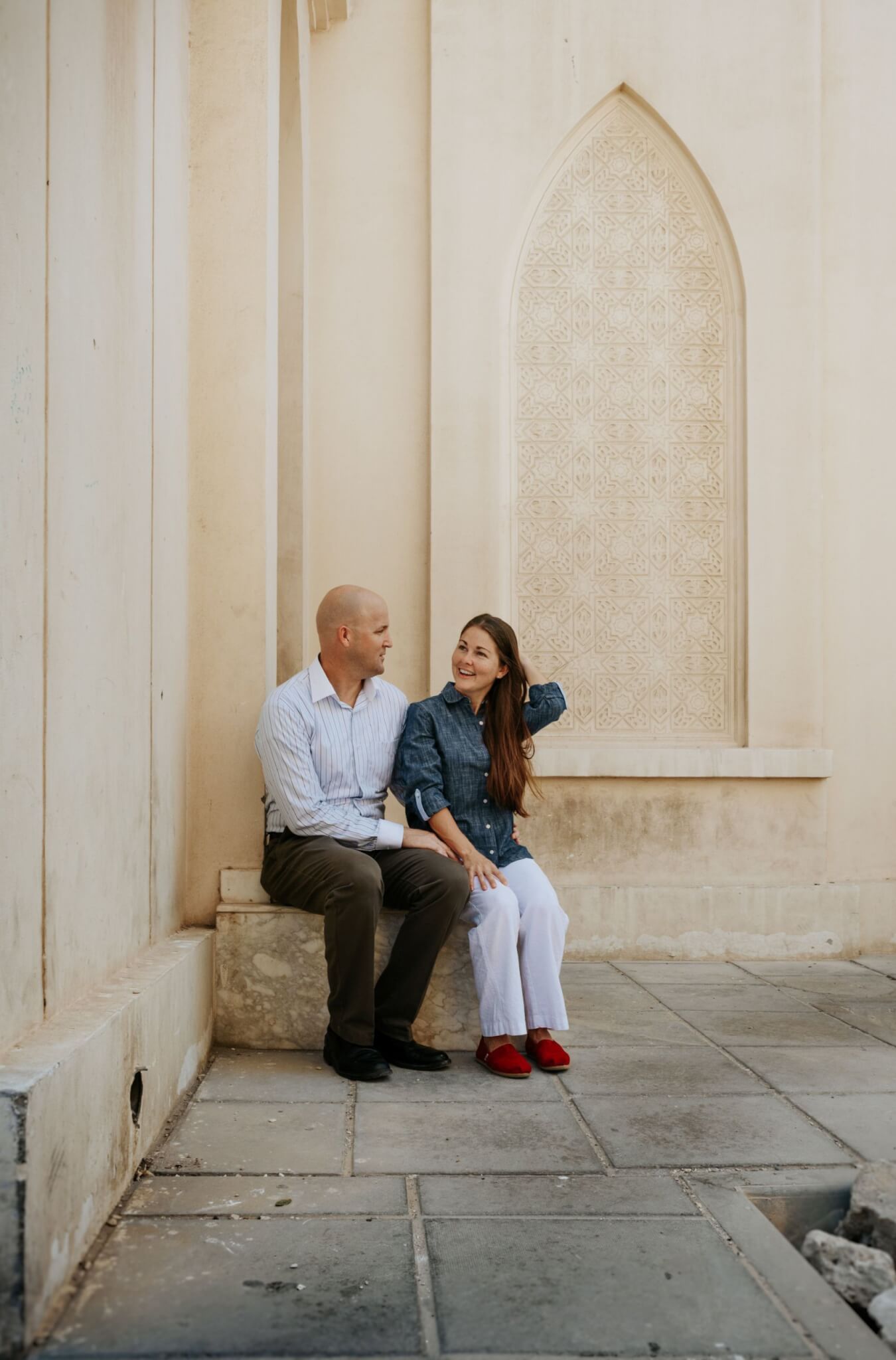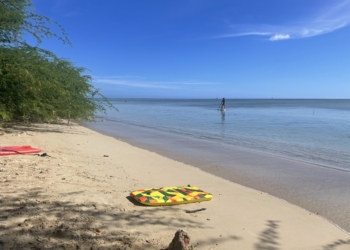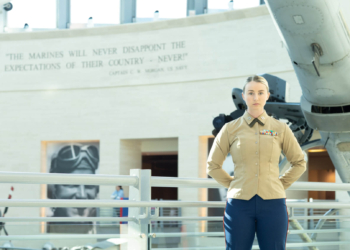An enlisted leader is proving the Coast Guard’s reach extends far beyond America’s coastlines.
Bahrain is the epicenter of the Combined Maritime Forces — a partnership comprised of 33 different nations dedicated to combating terrorism and piracy, while promoting maritime safety. Command Master Chief Lucas Pullen, the first Coast Guard member to hold a senior enlisted leadership role for a coalition force, serves as its liaison. The decision to put him in that position instead of a sailor was done purposefully, he says.
Since the CMF operates as a part of U.S. Naval Forces Central Command, a coastie brings objectivity, Pullen explained. In the midst of extensive Navy operations, him being in the Coast Guard more clearly defines his position and role.
“With this there are no blurred lines on who does what, I am able to specifically make sure things are working for the coalition side of things,” Pullen said.
The Oklahoma-native enlisted in the Coast Guard in 1998 to become a Boatswain’s Mate, a rating that is the operational core of almost every mission. After completing basic training, he was assigned to Small Boat Station South Padre Island, Texas, according to his official biography. As an operator, he gained experience “in maritime law enforcement to include fisheries, counter-narcotics, and counter-migrant operations, as well as search and rescue, and maritime security operations.”
Pullen’s extensive 22-year Coast Guard career prepared him for his new role as the senior enlisted leader of the CMF. He now works directly with senior military leaders from the multi-national partnership to promote security and stability across 3.2 million square miles of international waters.
“As a command master chief, one of my main jobs is the people and their families,” he said.
Working directly with members of the coalition has been an incredible experience, Pullen added. He described a typical day as starting with sharing Arabic coffee with a Kuwaiti leader and ending with tea and scones with the British. He loves the diversity and continuous ability to learn from the other nations’ military leaders, he said, also expressing his position in Bahrain will serve him well for further Coast Guard positions, although none will probably be as unique and involved.
Prior to Bahrain, the Pullen family was stationed in Guam — a duty station the kids did not want to leave. Marcy Pullen, who has moved 10 times with her husband, didn’t initially think she and the couple’s children would be eligible to PCS to Bahrain. It is typically an unaccompanied tour but a waiver changed that.

“I didn’t hesitate, I said let’s go,” she said.
Her husband praised his family’s resiliency and strength. Their oldest son, Tucker, is 17 and about to start college. If he attends the same college all four years, it’ll be the longest he’s ever lived anywhere.
Adjusting to life in Bahrain has included a unique set of experiences for the family, due to the political influence, culture, and customs. Seated to their left could be a fellow military kid while on their right, a Saudi Arabian royal.
Sixteen-year-old Cheyenne shared her struggle with not being able to just go explore or do things independently off base because it isn’t safe, especially for girls. Bahrain is a very conservative country where most women are either hidden or extensively covered when in public. But Levi, 13, also says there’s some good to being a military kid in Bahrain.
“I loved getting to do new things like learning how to play cricket with the Australian military kids. You get all of these amazing experiences that are out of the way and interesting,” he said.
All of the kids did agree on one thing: the food is amazing. One of their favorite things to eat is Baklava, a sweet dessert dish made with nuts and honey.
More: New show takes viewers behind the scenes of the Coast Guard.
Pullen also credits the Coast Guard with preparing his family for such a unique assignment in the Middle East.
“Our quality of life thought process is very different from the other branches. I think we are very resilient as a service because we go into these remote locations without big military bases. We pick up all the military challenges without the resources there to support us,” he explained.
Marcy Pullen echoes his sentiment, reflecting on how hard it was as a new Coast Guard spouse and mom. She takes those lessons and experiences with her, using what she’s learned to help all military families who may be struggling to adjust to life in Bahrain.

With one year left in Bahrain, travel remains high at the top of their bucket list — though COVID-19 and tensions overseas have heavily restricted movement. As the Pullen family reflected on their journey, they agreed each move has brought new lessons and memories. They eagerly anticipate their next Coast Guard adventure that can take them anywhere.







































